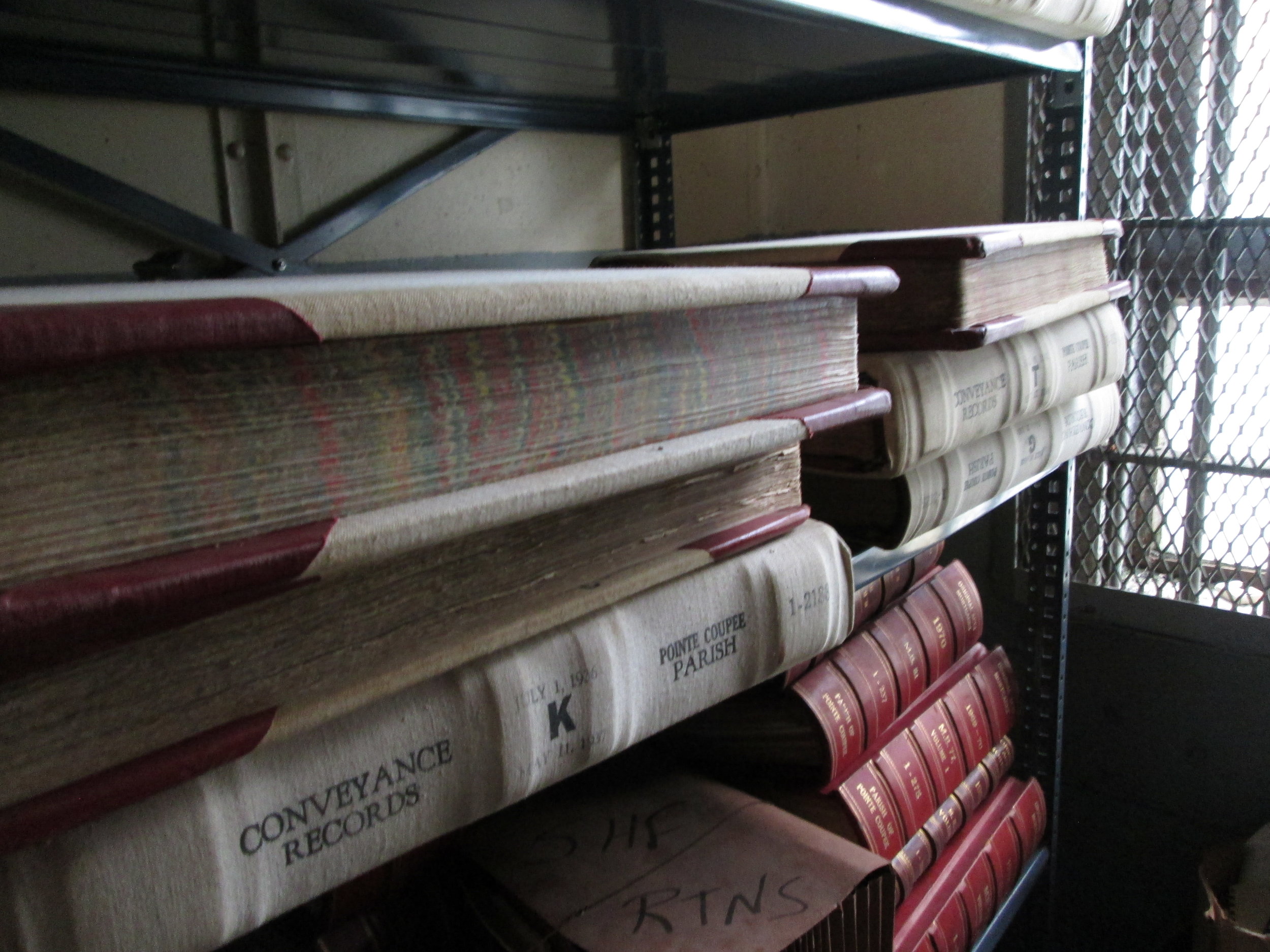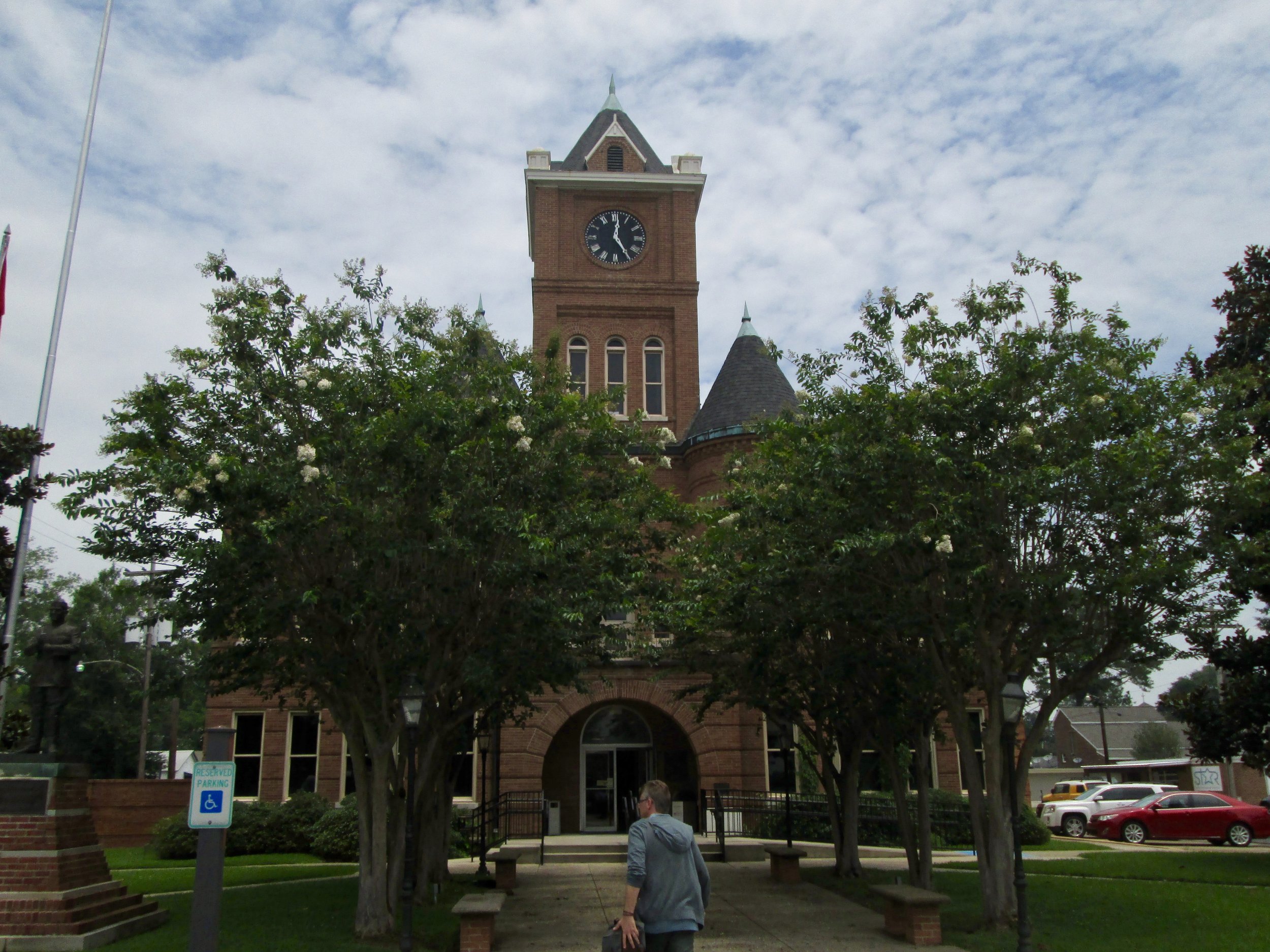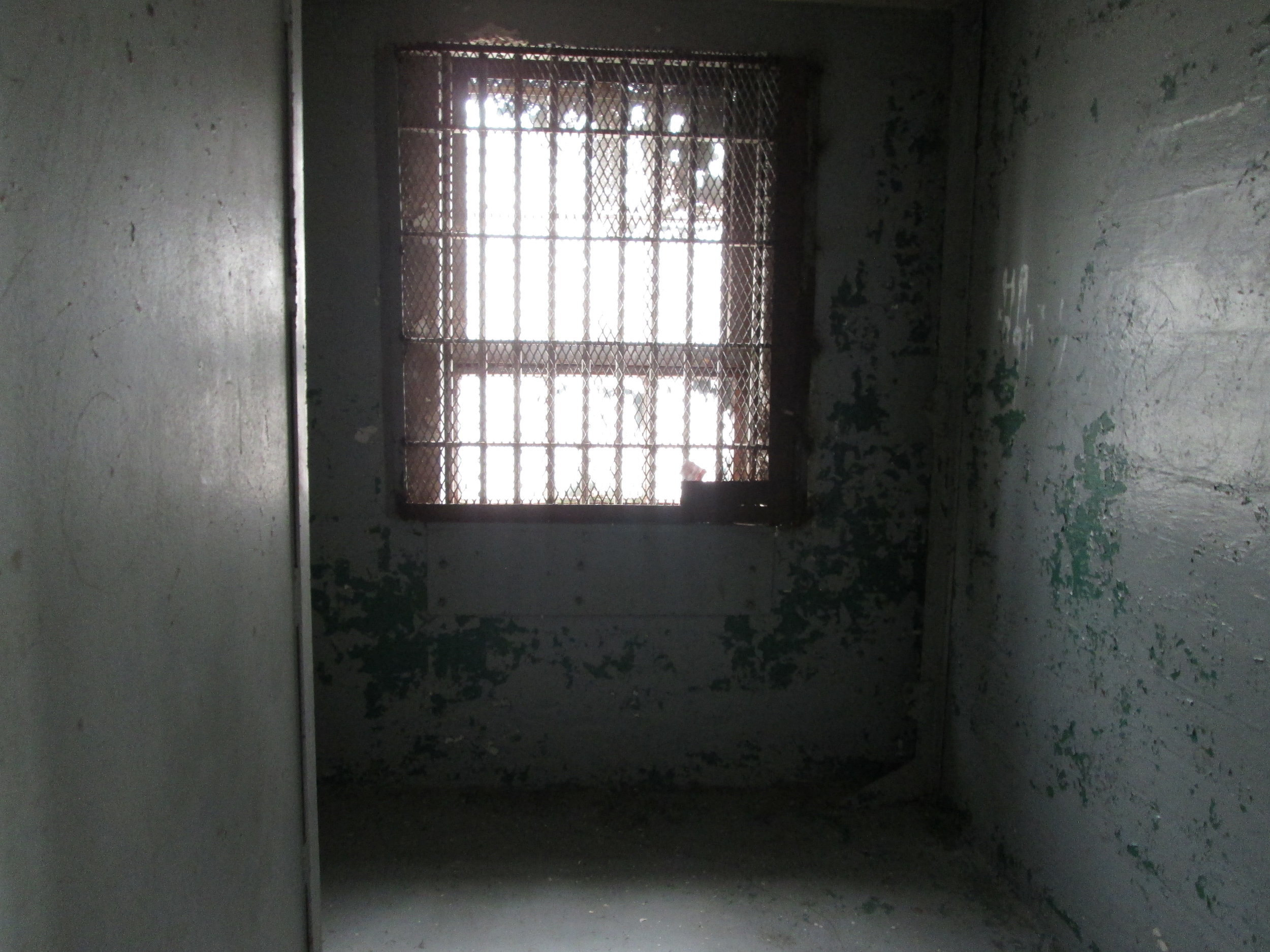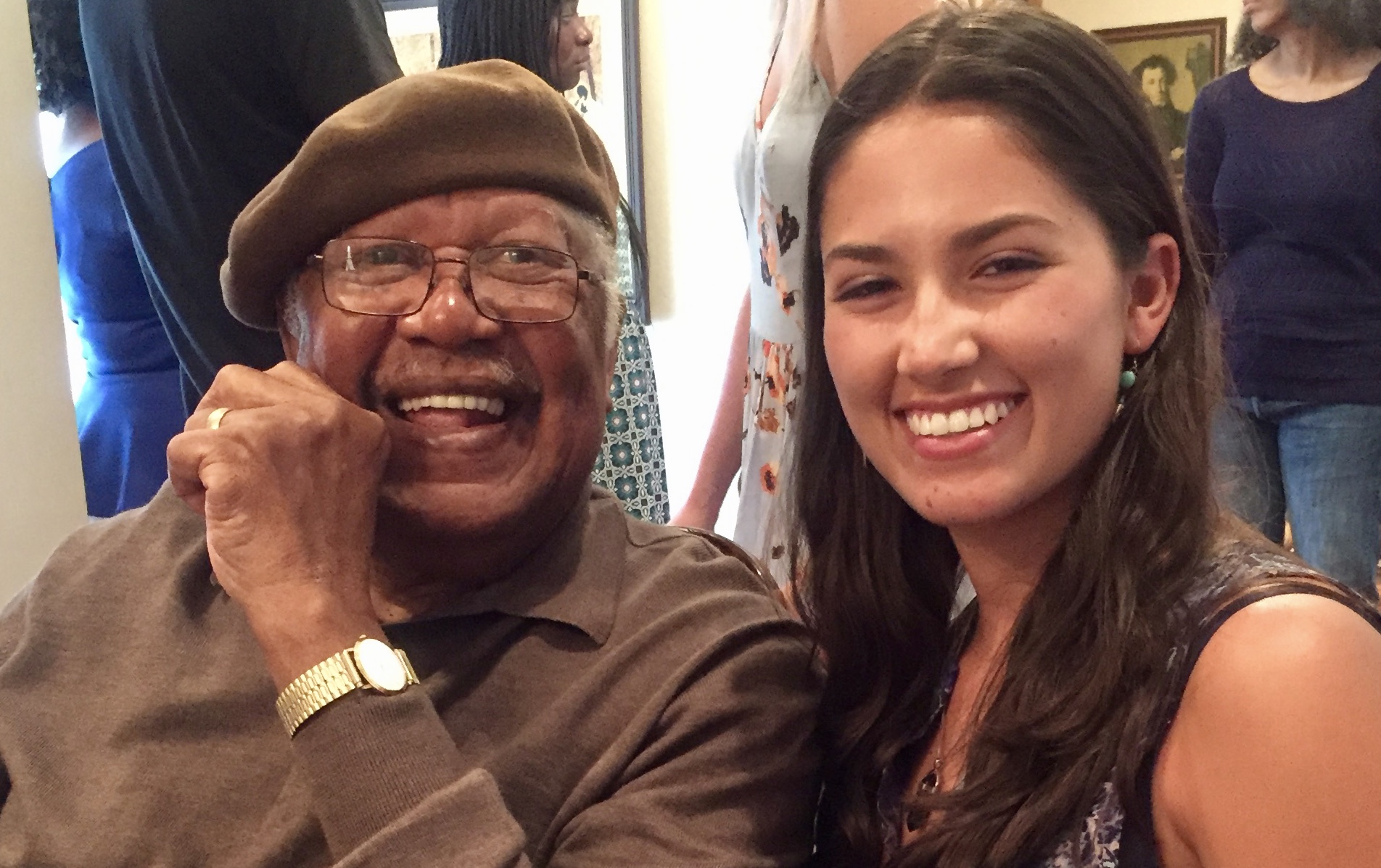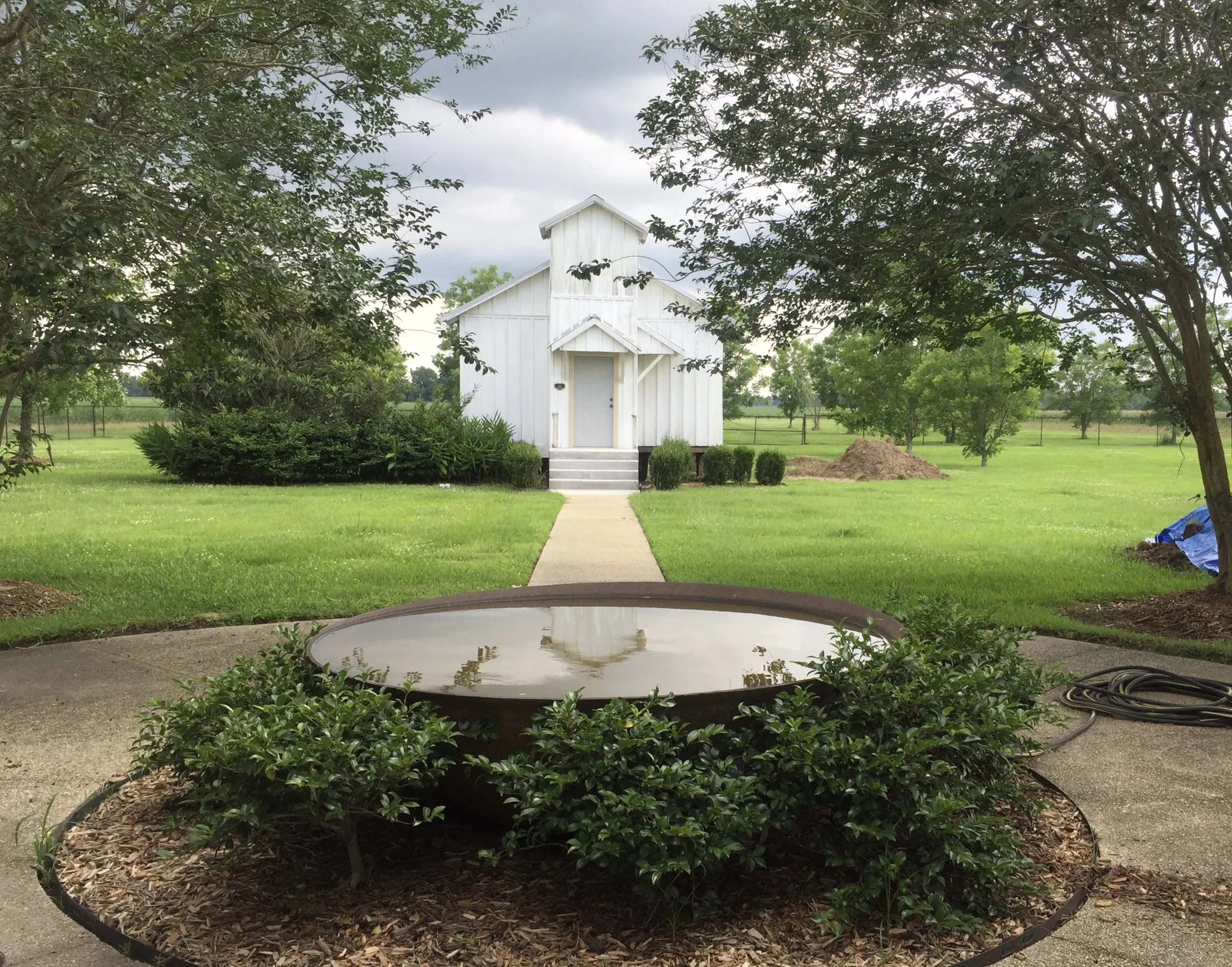“I don’t know when I’m going to die, Jefferson. Maybe tomorrow, maybe next week, maybe today. That’s why I try to live as well as I can every day and not hurt people. Especially people who love me, people who have done so much for me, people who have sacrificed for me. I don’t want to hurt those people. I want to help those people as much as I can.”
We pulled up in our too-big black van to the gates with the large letter G's woven into their ironwork. The sky above us was filled with clouds that sprayed gentle showers over the fields of sugarcane to our left. As we were greeted by his daughter and wife with charming smiles at the door to his house, I felt a rush of excitement.
Meeting Ernest J. Gaines, the author of the most significant book I've read on our bookpacking journey through southern Louisiana, was a once-in-a-lifetime experience. We were welcomed kindly into his home to talk about his life and his time as an author of great literature, and I saw his eyes sparkle behind his glasses as we asked him questions. He told us about his life in this part of rural New Roads, Louisiana in the 1930's and 40's, where he lived on a plantation as a child and went to school in an old church house when he wasn't working in the fields. He spoke about his move to San Francisco when he was only fifteen years old, and how the soul of the South never ceased calling back to him until he moved back years later. "All of my books are about going back to the old place," he said thoughtfully.
"I used to write letters for the old people because many of them had not had any education at all," Dr. Gaines said about his first interaction with writing. "I did create letters that time. [The old people] had about two lines, and I had to say something to keep this thing going."
"When I went to California...I had a choice of three places: the movies, the library, and the YMCA." He smiled. "I didn't have the money so I didn't go to the movies, and I went to the YMCA and I was foolish enough to get in a boxing ring with a guy who just beat me up, so I thought I ought to go to the library." He laughed.
When Dr. Gaines started reading at the library, his love of books grew at an exponential rate, and consequently his urge to write followed. "I didn't know there were so many books in the world," he said. "There were hardly any books there about my people, my culture...[and] it was then that I tried to write." He smiled. "From reading all the white writers, I learned how to put a book together, how to build a house. But the black musicians, especially the blues musicians, taught me what should go into the house."
With his unique voice standing among so many white writers of and before his time, his book, A Lesson Before Dying, put our exploration of Cajun country into context. The novel outlines the story of a black schoolteacher who is confronted with the task of restoring a young, black convict's human dignity before his execution; while the novel is not autobiographical, the setting and the certain experiences of the schoolteacher reflect Dr. Gaines's hometown and his acquaintance with race relations.
“I didn’t know there were so many books in the world.”
Visiting Dr. Gaines in his childhood town put into perspective the themes of communal expectation and societal oppression marked by his writing. Listening to the rustle of sugarcane in the wind and wandering through the old court house's jail cells (where Jefferson, the convict, spent his last months in the novel) took me back into that time period, putting me into the shoes of those black men and women who eked a living in a society and economy geared to work against them.
Speaking with Dr. Gaines about his relationship with literature was very telling of the time period he lived in, which wasn't as far back as we think - only around the 1950's. With the help of narratives written by and about the African American experience, historical context and credit may be given to a country that still struggles to climb out of the cruel history of racism.
